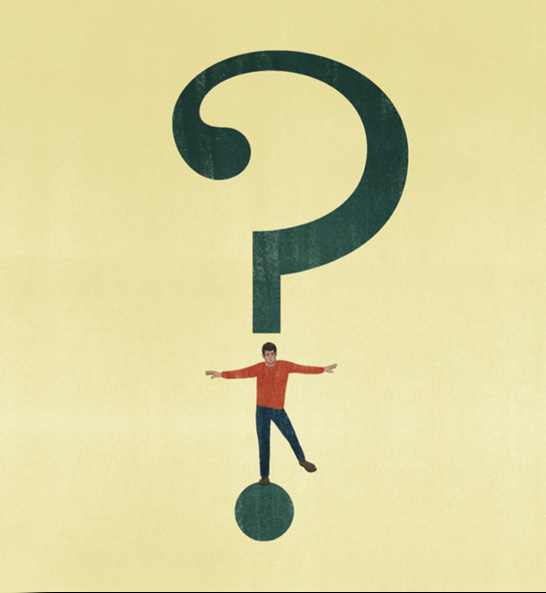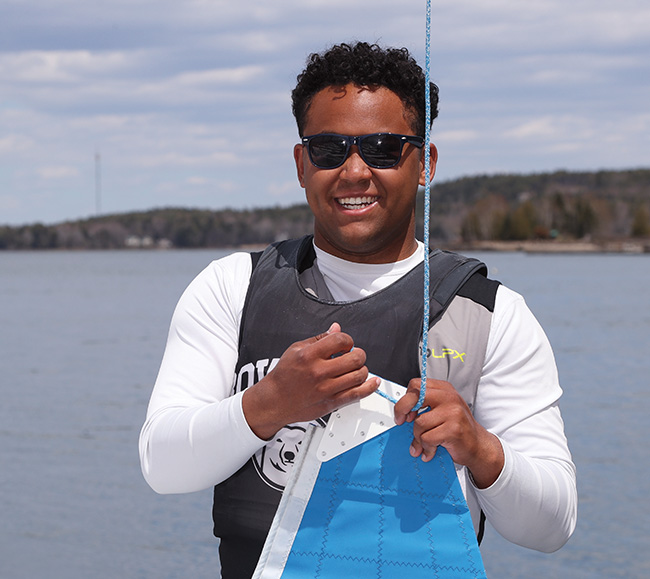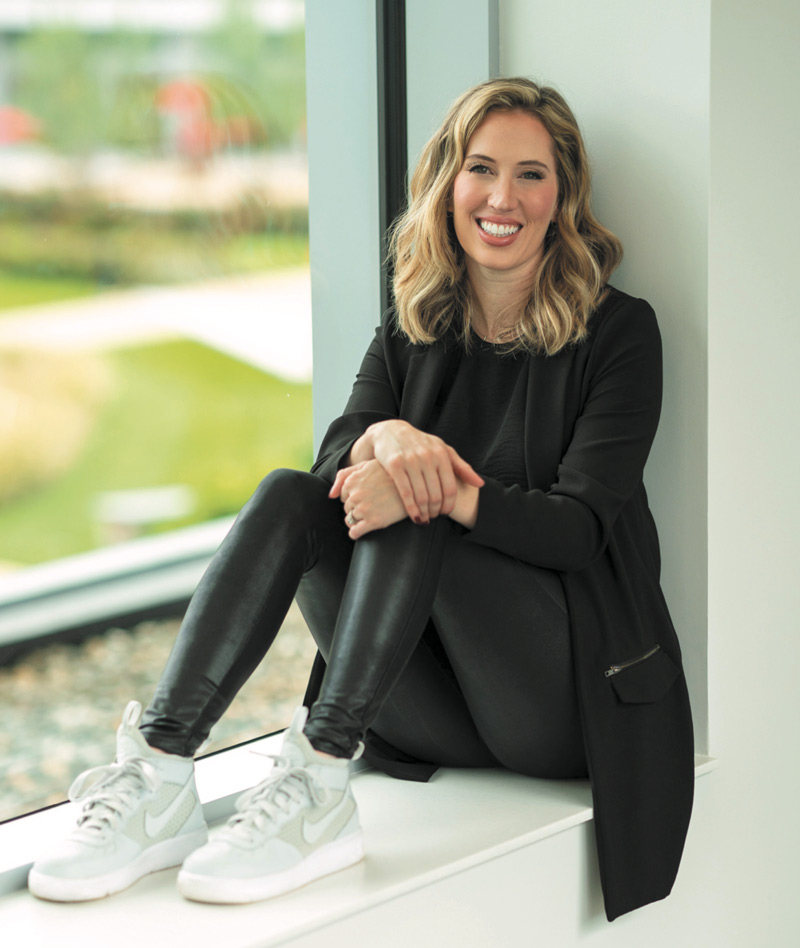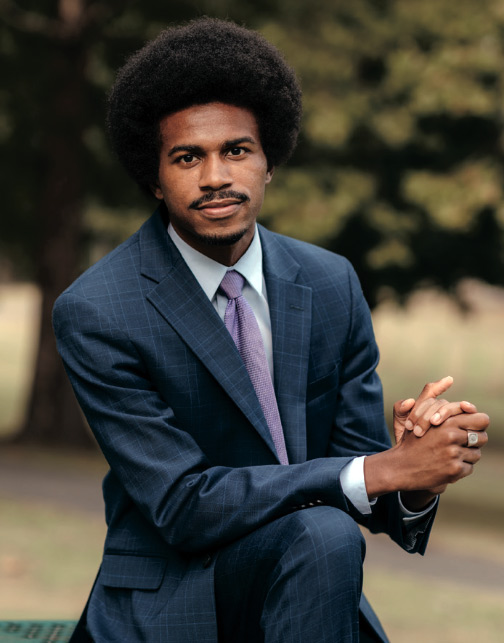The Reinventor
By Bowdoin MagazineAfter majoring in neuroscience and working in medical relief and then at venture capital fund, Christopher Fung ’12 started over—and found his passion for acting.
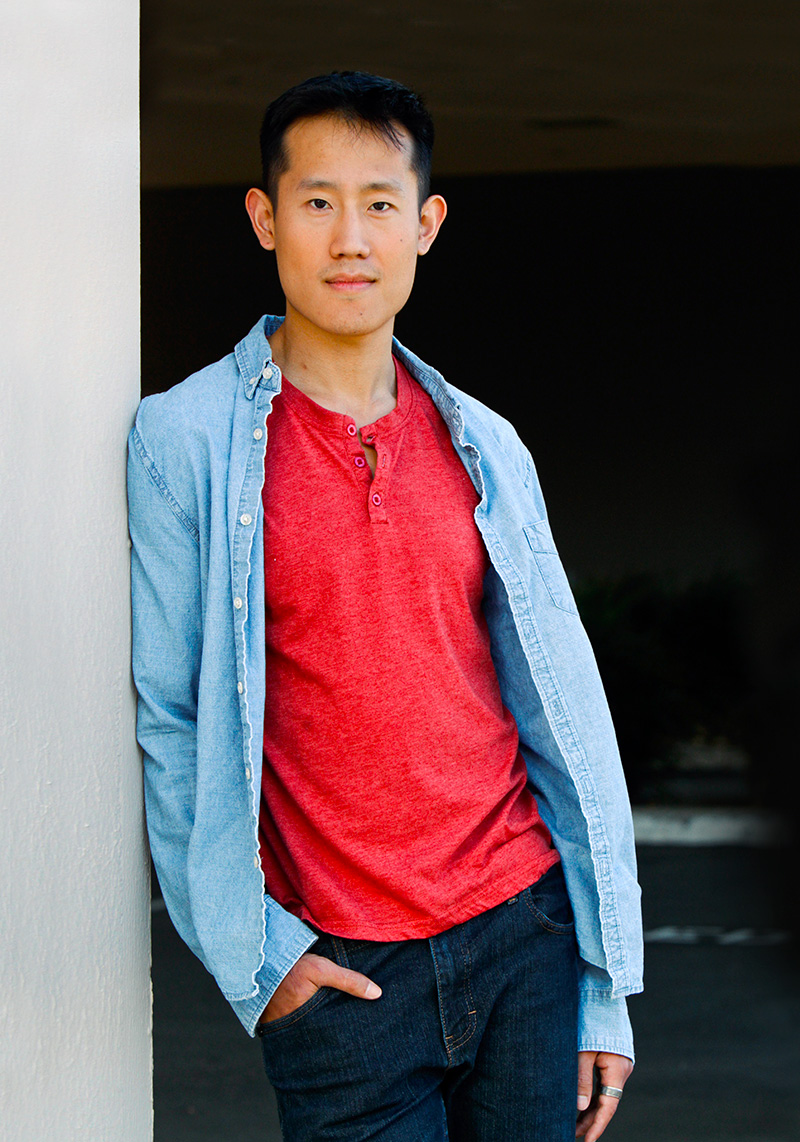
What draws you to acting and the other work that you do? What’s exciting about it? What's fulfilling?
I found performance art late in life, after having majored in a totally unrelated discipline and having pursued a career in a similarly totally unrelated field. You could call it an existential crisis. When I realized I was unhappy with my job and my life, it occurred to me that I might actually be interested in filmmaking, since I’ve always loved television and cinema.
Acting is inherently an ethnographic, anthropological endeavor. It is generative, explorative, and deeply emotionally fulfilling—to act is to reveal to yourself and to others the infinity of human expression and identity. That’s why I love it. I’ve always felt a lot, felt very deeply, so to take a look at a person who may have a lot or very little to do with yourself, who may share many of your inclinations and proclivities—or seemingly none of them and appear to be antithetical to who you are—either way, that’s the good shit. It’s exhilarating.
By using your own body, gut, and mind to reveal the virtues and vices of a particular human being, and allowing that expression to be shared on screen, you are bringing people closer together, because there is some part of the identity you’ve portrayed that resonates with person A and person B, whoever they are. Suddenly those two people have something in common. It’s medicinal, and it’s something the world badly needs.
How did your career unfold?
After majoring in neuroscience and minoring in anthropology at Bowdoin, I did medical relief in Haiti, followed by HIV research and education in Zambia, thinking I’d become a doctor. When I realized I didn’t want to be a doctor, I went to work at a venture capital fund in Shanghai, where I started as an intern and eventually became a program manager. For a couple of years, I worked ninety hours a week and realized I was unhappy in that career, so I quit.
During that hiatus, I traveled to different countries, ran marathons, and cleansed myself of the ick I was feeling, and then—still in an existential crisis—moved back to the US and beelined to Los Angeles on a whim. I thought it might be fun to work as an extra on large film sets, so I did that. It was then that I realized how complex and incredibly interesting film production is and thought to myself that I might just want to seriously give acting a try. So, I moved to New York for about a year, did loads of student films at NYU Tisch, did some screenwriting, and finally confirmed that I had found my life’s passion.
After a health crisis that nearly did me in, I moved back to the San Francisco Bay area, where my sister is a physician, and recovered from that—and then, boom. Everything sort of took off for me—I signed with an agent, did commercials and industrials for tech companies, landed larger and larger roles in independent short and feature films that did well in festivals. Now I have reps in both NorCal and SoCal, and I work in both areas. It’s a blast; I could not be happier.
Do you use your training as a neuroscientist in your work in any way today?
Every single day. My education in both neuroscience and anthropology has given me a competitive edge, actually. A lot of actors who are auditioning for the same parts have been doing musical theater since they were eight years old, whereas I never studied anything to do with drama or film until my twenties. But I’m booking those gigs, which I think largely has to do with what I did study and how and why I studied it; a profound interest in human behavior has been the common thread through all of it.
What brought you to Bowdoin? What was your experience at the College like?
Great grades and test scores. I wasn’t interested in the Ivy Leagues. I did a little research and knew early on that I wanted to attend a smaller liberal arts institution where I could get a world-class education while also experiencing more intimate mentorship from profs in a smaller class setting. The deal was sealed when I visited Bowdoin the year that The Princeton Review, I think, said it had both the happiest students as well as the best food of any university/college campus in the country. Lobster bisque? Oh yeah.
My experience while at Bowdoin was, well, so-so. My classmates and instructors were great, I just didn’t know who I was while I was there. It was like a perfect opportunity that I did not, or was not able to, take full advantage of. My advice to current students and prospective students is to discard your inhibitions and learn and socialize as freely as your gut tells you to. Be free, be earnest, and work hard—it’s preparation for you to do exactly the same in life after you graduate. You’re blessed to be in the Bowdoin “bubble,” as people call it. Take full advantage. I wish I had.
What inspires you?
Everything. Elation. Tragedy. Race, gender, cultural discourse. Little chuckles as much as full on knee-slapping ha-ha’s. The fantastical, the mundane, the mysterious. Cars vaulting through the air and exploding, intimate dialogue, passionate lovemaking, and everything in between.
Is there something about the work you do that others would find surprising?
If you’re serious about acting or filmmaking in some capacity, it’s ridiculously hard work. No cap. Eighteen-hour days, day after day on set for a couple weeks, and you will realize that 1) if it isn’t actually your lifelong passion, you have undergone torture; and 2) if it truly is your lifelong passion, well, damn, you are worn to the bone by the end of the production, but it’s been bliss the whole time.
Is there something about YOU that others might find surprising?
- I’m pretty boring/unremarkable. I am a homebody. I only have two or three close friends—who are the nucleus of my life—and everybody else I am cheerful and kind toward, but I’m likely trying to find a way out of the conversation so I can go home and tape another audition.
- That might have been a lazy response or a copout. I am bilingual, I have traveled to twenty countries, and I have run multiple marathons. Two, precisely. The first a very standard flat-terrain 26-mile marathon in Seoul, Korea, and the second a 52-mile/84-km ultramarathon up a 7,100-ft vertical climb in the mountainous Bursa region of Turkey. It took me thirteen hours, I nearly died sprinting down a mountain in near-pitch-darkness wearing a little headlamp, and I will always remember it.
What do you enjoy doing in your spare time?
Sleeping. Going to the gym. Gaming. All very unexciting stuff, because I need to turn my brain off after shooting self-tape auditions until 4:00 a.m.
Favorite Bowdoin memory? Or best thing you learned at Bowdoin?
Professor Susan Bell told me, “You have a visionary way of thinking and writing. You actually remind me of a young Karl Marx.”
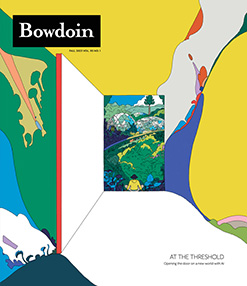
This story first appeared in the Fall 2023 issue of Bowdoin Magazine. Manage your subscription and see other stories from the magazine on the Bowdoin Magazine website.
